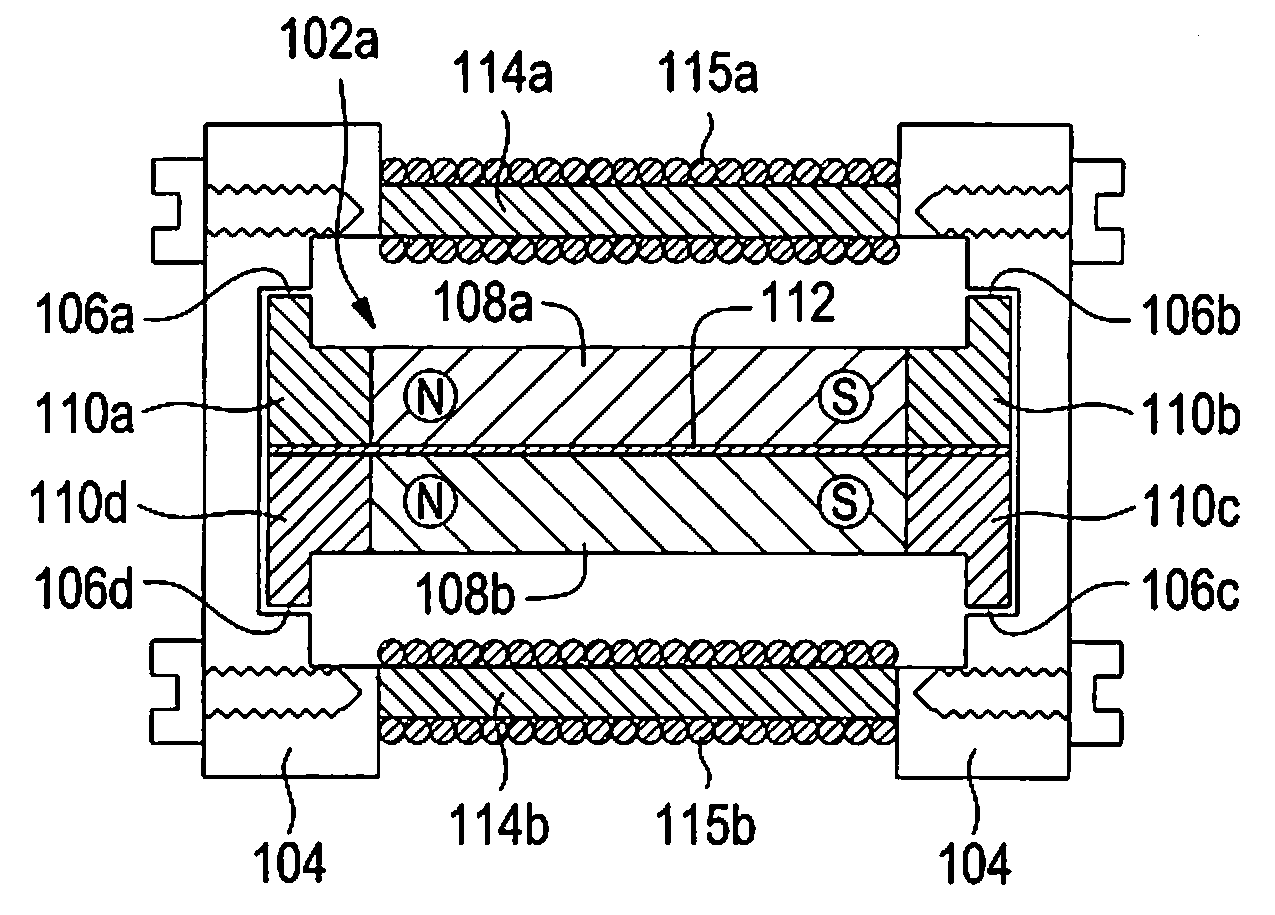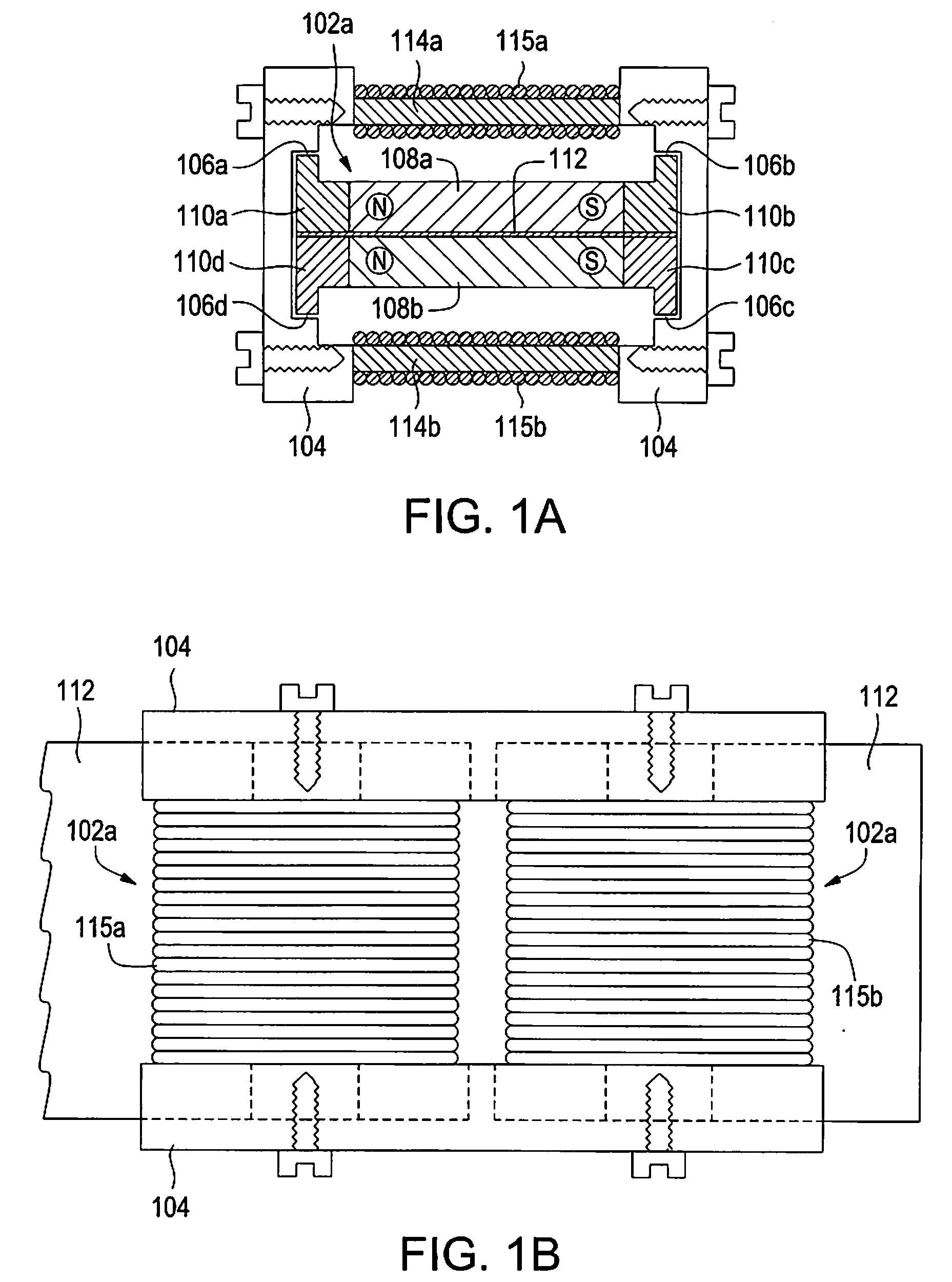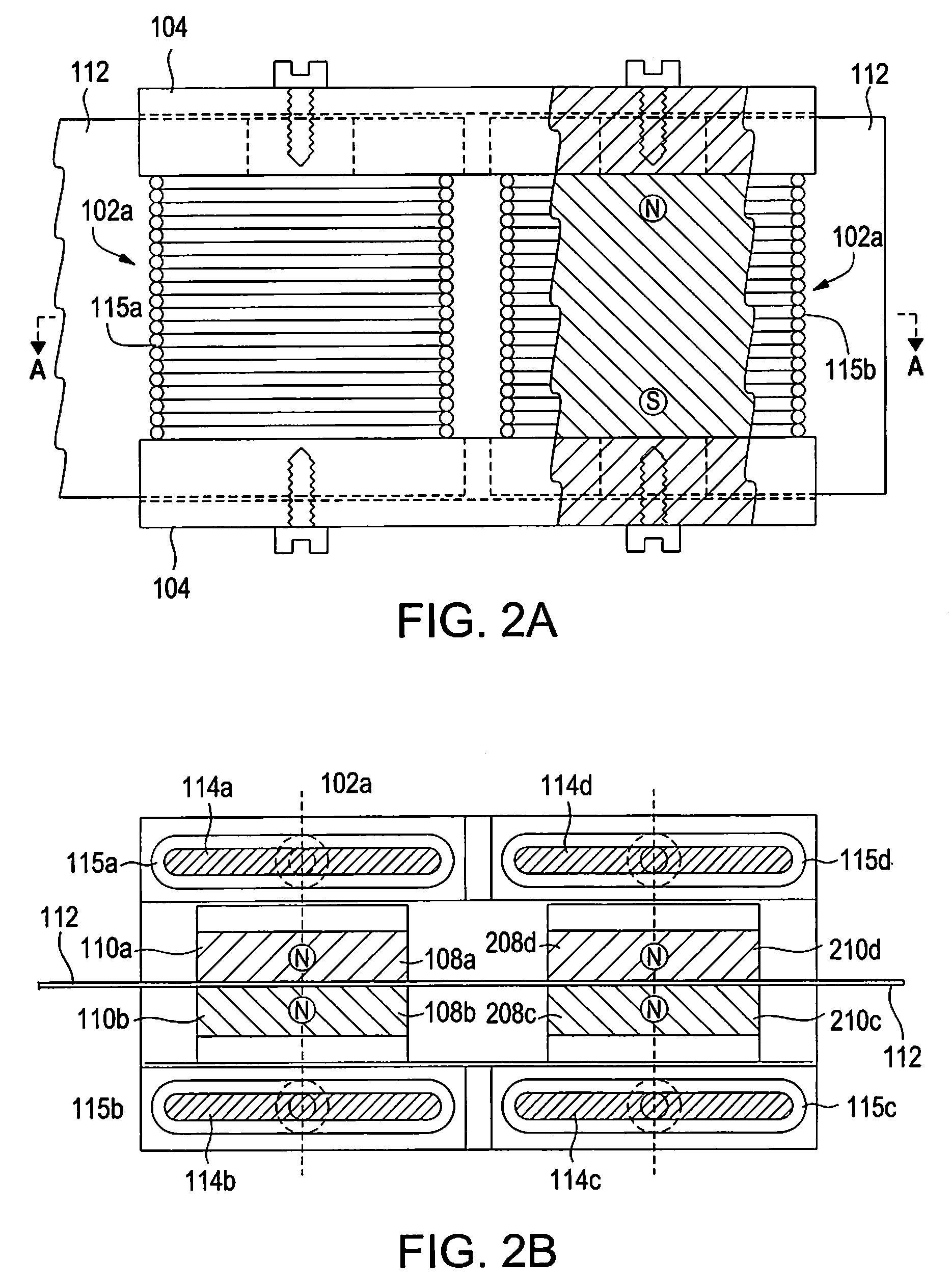Stepping flexures
a flexural and stepping technology, applied in the field of high-precision micro actuators, can solve the problems of reduced piezoelectric motion, difficulty in clamping piezoelectric/electrostrictive “inchworms” and other problems, and achieve the effect of improving aerodynamics
- Summary
- Abstract
- Description
- Claims
- Application Information
AI Technical Summary
Benefits of technology
Problems solved by technology
Method used
Image
Examples
example
From Example in Step Size Calculations above
[0138]0=8.250022 (E-1) deg. Or 1.439900 (E-2) rad. (Worst Case Situation)[0139]L= 5 / 16 in.[0140]MA=(⅔) [1.999585 / 1.439354 (E-2)]=92.61495
[0141]Note: actuator is limited by Frictional Holding Force. Its' Drive is always stronger than its holding force.
[0142]Holding Force (see, Hayt, William h. Jr., Engineering Electromagnetics, Fourth Edition, Copyright 1981, McGraw-Hill, Inc., ISBN 0-07-027395-2 (p. p. 327 Magnetic Force equation).
F=12B2Sμ0;SayB=1Telsa;S=(12in.)×(116in.)×2(3.1)
(Note: Area dimensions in equation 3.1, are taken from FIG. 1 example).
[0143]F=12(12)(12)(116)(2)(4π)(E-7)(40)(40)=2(E7)(64)4π(1600)(3.2)
Resulting in normal forces:
F=15.54247N=3.491040lbf.(3.3)
Which, in turn, leads to holding (friction) forces:
μS=1; FF=3.491040 lbf. (3.4)
μS=0.5; FF=1.745520 lbf.
Using high performance magnetic materials (such as Hiperco 50A), B=1.6 Tesla can be used. Using this material in equations (3.1) (3.2) above, we get:
B=1.6;F=39.78874N=8.9449...
PUM
 Login to View More
Login to View More Abstract
Description
Claims
Application Information
 Login to View More
Login to View More - R&D
- Intellectual Property
- Life Sciences
- Materials
- Tech Scout
- Unparalleled Data Quality
- Higher Quality Content
- 60% Fewer Hallucinations
Browse by: Latest US Patents, China's latest patents, Technical Efficacy Thesaurus, Application Domain, Technology Topic, Popular Technical Reports.
© 2025 PatSnap. All rights reserved.Legal|Privacy policy|Modern Slavery Act Transparency Statement|Sitemap|About US| Contact US: help@patsnap.com



